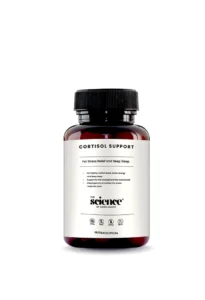If you want to know how to clear brain fog, the solution begins with simple yet powerful lifestyle changes like drinking enough water, sleeping well, and reducing stress. These basic habits can bring immediate clarity to your mind and set the foundation for long-term mental sharpness.
Brain fog is not a disease but a common condition where your thoughts feel cloudy, your memory seems unreliable, and focusing on daily tasks becomes frustrating. Many people describe it as being mentally stuck in a haze. In today’s fast-paced world, stress, poor diet, and lack of rest make brain fog more common than ever.
This guide will walk you step by step through what brain fog really is, the signs and causes you should know, quick methods to get relief, long-term solutions, and when it’s necessary to consult a doctor. By the end, you will not only understand how to clear brain fog naturally but also learn how to prevent it from returning.
What Is Brain Fog Really?
Brain fog is best described as a temporary state of mental cloudiness, confusion, or lack of sharp focus. It can affect anyone, regardless of age or background, and often appears when the body and mind are overwhelmed. Unlike conditions such as dementia or Alzheimer’s, brain fog is not permanent and can usually be reversed with the right strategies.
When experiencing brain fog, people often report feeling:
- Sluggish or mentally tired even after rest
- Forgetful when trying to recall names, numbers, or tasks
- Distracted, unable to focus on conversations or work
- Overwhelmed by simple decision-making
Imagine your brain as a computer with too many programs running at once. It slows down, struggles to function efficiently, and may even freeze. Learning how to clear brain fog is like closing unnecessary tabs and refreshing your system so you can think clearly again.
Signs and Symptoms of Brain Fog
The signs of brain fog vary from person to person, but there are several common symptoms that indicate your brain is not operating at its best.
Common Symptoms
- Forgetfulness in daily life
- Struggling to concentrate on one task for long
- Slow processing of information
- Fatigue that affects mental clarity
Hidden Symptoms
- Emotional dullness or lack of enthusiasm
- Trouble finding the right words in conversation
- Reduced coordination or occasional clumsiness
- Avoiding social situations because of mental tiredness
These symptoms can affect work performance, relationships, and personal well-being. Recognizing them early helps you take practical steps on how to clear brain fog before it disrupts your quality of life.
Causes of Brain Fog
Brain fog has multiple causes, and identifying the root issue is crucial to knowing how to clear brain fog effectively.
Lifestyle Factors
- Poor sleep patterns that prevent deep rest
- Stress that raises cortisol levels and reduces memory and focus
- Diet high in processed foods and low in essential nutrients
- Dehydration which slows mental and physical performance
Medical Conditions
- Thyroid imbalances that affect energy and focus
- Hormonal changes, particularly in women during menopause
- Autoimmune disorders that trigger inflammation
- Mental health conditions like ADHD or depression
External Triggers
- Long COVID leading to prolonged fatigue and cognitive decline
- Certain medications such as antihistamines and sedatives
- Cancer treatments like chemotherapy which may cause “chemo brain”
Understanding these causes helps you take targeted action instead of just treating the surface-level symptoms. Only then can you truly master how to clear brain fog naturally and permanently.
How to Clear Brain Fog Quickly (Immediate Relief)
If you need fast results, here are some effective quick fixes:
- Drink a glass of water with added electrolytes to rehydrate the body
- Step outside for a short walk and practice deep breathing
- Splash cold water on your face to wake up your nervous system
- Use peppermint or eucalyptus essential oils for a mental refresh
- Take a 10 to 20-minute power nap to reset your brain
These are instant methods that work well if you are at work, studying, or simply need quick clarity. They won’t replace long-term strategies, but they give you immediate relief while you work on bigger changes. Knowing these small tricks can be life-changing if you are serious about how to clear brain fog during the day.
Long-Term Strategies to Cure Brain Fog
Quick fixes are helpful, but lasting clarity comes from building strong habits. Here are proven long-term approaches:
Optimize Sleep
- Maintain a fixed sleep schedule even on weekends
- Sleep in a dark, cool, quiet room
- Avoid screens at least one hour before bedtime
Eat Brain-Boosting Foods
- Include omega-3 rich foods like fish, walnuts, and flaxseeds
- Add leafy greens, berries, and eggs for vitamins and antioxidants
- Limit sugar and processed foods that lead to energy crashes
Exercise and Movement
- Take regular walks to improve circulation and oxygen supply
- Practice yoga to balance stress and enhance focus
- Include strength training or dance for overall energy
Stress Management
- Meditate daily to calm the nervous system
- Journal your thoughts to reduce mental clutter
- Learn to say no and set boundaries at work and home
Supplements (with medical guidance)
- Vitamin D for mood and energy
- Vitamin B-complex for mental clarity
- Omega-3s for improved brain function
By building these practices into your daily life, you will not just learn how to clear brain fog but also build a brain that resists it in the future.
When to See a Doctor
Brain fog is usually temporary, but in some cases, it signals deeper health issues. Seek medical help if:
- Brain fog lasts for more than two weeks despite lifestyle improvements
- It seriously interferes with your work or relationships
- It appears with other symptoms like weight changes, severe fatigue, or mood disorders
In such cases, knowing how to clear brain fog means working with a professional to uncover the root cause.
Lifestyle Strategies for Daily Clarity
You can also prevent brain fog by adjusting your daily routines:
- Use reminders, notes, or digital apps to offload memory tasks
- Simplify decisions by preparing meals and clothes in advance
- Track your daily energy to notice patterns and improve productivity
- Create a morning routine with hydration, sunlight, and stretching to kickstart clarity
These small but consistent practices make the journey of how to clear brain fog easier and more sustainable.
Conclusion
The best news about brain fog is that it can be reversed. By focusing on better sleep, balanced nutrition, exercise, and stress management, you can regain your mental clarity. Understanding how to clear brain fog is about more than short-term relief; it’s about building habits that give you lasting energy and focus. Even small changes done consistently can bring powerful results.
Explore Smriti Kochar
“If you’ve been struggling with brain fog, fatigue, or low energy for weeks or months, it may be your body’s way of asking for deeper healing. At Smriti Kochar’s Ultra-Wellness Program, we’ve helped thousands reverse brain fog and regain mental clarity, without medicines, using 100% natural interventions. Don’t just manage your symptoms, heal the root cause. Start Your Healing Journey Now »
For those looking for extra support in their journey, you may also consider natural supplements. A recommended option is Sharp Brain and Focus, designed to enhance memory, attention, and concentration. Always pair supplements with healthy lifestyle practices for the best results.
Read Our Latest Blogs
Stomach Pain but No Period | Why Do I Have Lower Cramps but No Period | 10 Days Late for Period, No Symptoms | No Period after Abortion, Negative Pregnancy Test | Brain Fog Causes | How to Get Rid of Brain Fog | How to Cure Brain Fog | Supplements for Brain Fog | How to Deal with Brain Fog
Frequently Asked Questions
Ans: It can last a few hours to several weeks. The duration depends on whether it’s caused by temporary issues like stress or deeper medical concerns.
Ans: Yes, nutrient-rich foods like nuts, leafy greens, berries, and omega-3 sources provide energy to the brain and improve focus.
Ans: No, people of all ages experience it. Stress, lifestyle, and diet are bigger contributors than age alone.
Ans: Even short bursts of physical activity improve oxygen supply to the brain and can immediately enhance clarity.
Ans: Yes, chronic stress produces hormones that directly interfere with memory and concentration.
Ans: Coffee can temporarily improve alertness, but too much caffeine can cause crashes and worsen fog over time.
Ans: Yes, most cases are reversible when lifestyle changes and medical treatments (if needed) address the underlying cause.
Ans: The quickest solutions are hydration, deep breathing, and movement. For lasting results, combine these with long-term habits.





